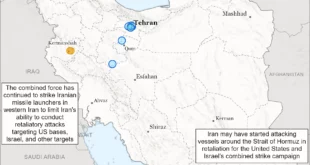In a new development, Islamabad has communicated to Tehran that Pakistan is ready to import five billion cubic feet of gas per day through the proposed $3.6 billion Iran-Pakistan (IP) gas line to make the project more economically viable as India is currently pursuing a wait and see policy, a senior government official told The News. Â
Â
Â
Pakistan and Iran are currently holding technical talks at the joint working group level.Â
Â
Hojjatollah Ghanimifard, the special representative on gas project, led the Iranian side to the talks while Secretary Petroleum Farrukh Qayyum led the Pakistan team.Â
Â
Â
The Iranian team left yesterday for home.Â
Â
Under the earlier proposed $7.3 billion Iran-Pakistan-India (IPI) mega project, Islamabad was to import 3.15 billion cubic feet (bcf) per day from Iran (1.05 bcf per day under phase 1 and 2.1 bcf under phase II). However, India was to import 1.05 bcf per day in Phase I and 3.20 bcf in Phase II).Â
Â
According to the official who attended the meeting, now under the new scenario in the wake of India’s ‘evasive’ attitude as the Indian experts did not participate in the recently-held meeting in Tehran and even in the meeting at Islamabad, both Iran and Pakistan have decided to materialize the IP project and to make the project economically viable, the authorities concerned in Islamabad have placed new offer that Pakistan would import five billion cubic feet per day gas through the pipeline having radius of 56 inches.Â
Â
Â
“We have also asked the Iranian authorities that the gas to be imported from Iran can also be exported to China in the shape of LNG (liquefied natural gas) as the western part of the China is short of energy. If it happens, then the project would become further economically viable.â€Â
Â
Â
The LNG terminal would be made in Gwadar where the proposed IP pipeline would reach and the piped gas would be converted into LNG for export to China through proposed railways line from Gwadar to western part of China.Â
Â
Â
The Ministry of Railways is vigorously studying the feasibility of laying tracks from Gwadar to China. The official said that Pakistan had also extended offer to Iran to establish its own terminal in Pakistan.Â
Â
Â
The official also disclosed that both countries would follow the model of French laws to settle down amicably any dispute with regard to the IP gas pipeline in future after the commission of the project.Â
Â
Â
When asked if Pakistan had managed to include a clause in the final draft of the agreement which would make Iran bound to uninterrupted supply of gas, the official said that Pakistani experts were very careful in this regard and would ensure the inclusion of every kind of clause that would ensure uninterrupted supply of gas to Pakistan.Â
Â
Â
When asked as to whether Iran had agreed to take back its demand of revising the gas prices after every three years, the official said that Iranians were a tough nut to crack on this count. “So Pakistan has extended a proposal that the prices should be revised after every 10 years.â€Â
Â
Â
The Iranian delegation refused to respond to Pakistan’s offer and said they would communicate this offer to the top authorities concerned in Iran and then would come up with their response.Â
Â
Â
Pakistan is of the view that gas prices have already been linked with Japan crude cocktail (JCC) formula, which means in case the crude oil price increases then the gas prices would escalate and in case the crude oil price tumbles then gas prices go down accordingly, so there is no need to revise gas prices.Â
Â
Â
However, the official said right now in the ongoing talks in Islamabad, both sides had made progress on finalizing the four sub agreements, which would be a part of the final draft of the Gas Sales & Purchase Agreement (GSPA).Â
Â
Â
The official said the Economic Coordination Committee (ECC) had already approved the said formula on April 10, 2007.Â
Â
Tehrantimes
 Eurasia Press & News
Eurasia Press & News



